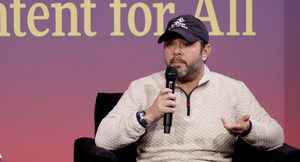Senator Ruben Gallego has urged the Democratic Party to reconsider its language regarding economic issues, particularly in relation to the rising cost of living in Arizona. During his speech at Crooked Con, a progressive media event organized by Crooked Media, Gallego highlighted the necessity for his party to adopt a fresh narrative around affordability, especially as Arizona’s cost of living has now surpassed the national average for the first time.
Gallego pointed out that traditional terms like “minimum wage” may not resonate with voters who are increasingly burdened by escalating living expenses. He emphasized that the current terminology fails to capture the urgency of the situation faced by many constituents. The senator’s remarks come at a critical time, as many families grapple with higher costs for housing, food, and other essential goods.
Reframing the Conversation
In his address, Gallego argued that the Democratic Party must shift its focus from merely discussing minimum wage increases to a broader conversation about economic stability and affordability. He believes that such a shift is essential for connecting with the electorate who feel the impact of rising prices on a daily basis. “We need to talk about what it really means to make ends meet in a state where the cost of living is rising,” Gallego stated, underscoring the urgency of the matter.
As Arizona’s cost of living continues to climb, many residents are feeling the pinch. According to recent data, the state’s living expenses have exceeded the national average, a trend that is affecting households across various income levels. Gallego’s call for a change in messaging reflects a growing recognition within the Democratic Party that language plays a crucial role in shaping public perception and policy effectiveness.
Impact on Voters
The senator’s remarks resonate particularly well with voters who are struggling to keep up with rising costs. Many families have reported feeling financially squeezed, and Gallego’s appeal for a new narrative could be pivotal in mobilizing support for Democratic initiatives aimed at economic relief. By reframing the discussion around affordability, he hopes to highlight the need for comprehensive solutions that go beyond wage adjustments.
This shift in communication strategy could also influence policy discussions at both state and national levels. As Democrats prepare for upcoming elections, addressing the challenges posed by the current economic landscape will be vital for maintaining voter trust and engagement.
Overall, Gallego’s call to action serves as a reminder of the importance of language in politics. By adopting a more relatable and comprehensive approach to discussing economic issues, the Democratic Party may better connect with voters and advocate for meaningful change that addresses their real-world experiences.
